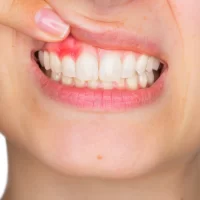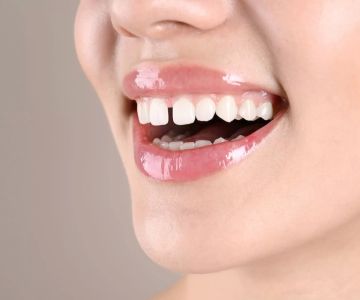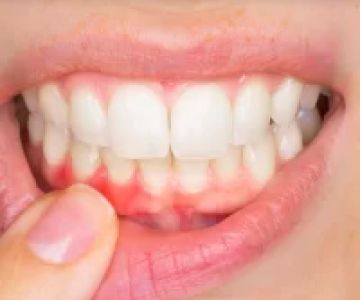
- What is a Dental Abscess?
- Common Signs of a Dental Abscess
- Causes of a Dental Abscess
- Treatment Options for Dental Abscesses
- How to Prevent a Dental Abscess
What is a Dental Abscess?
A dental abscess is a pocket of pus that forms in the tissues around a tooth due to a bacterial infection. It can occur at the tip of the tooth's root (periapical abscess) or in the gums (periodontal abscess). Dental abscesses are painful and can lead to serious health complications if left untreated. They often develop as a result of untreated tooth decay, gum disease, or an injury to the tooth that exposes it to infection.
If you suspect you have a dental abscess, it is crucial to seek treatment promptly to avoid complications such as the spread of infection to other parts of the body.
Common Signs of a Dental Abscess
Dental abscesses can present a variety of symptoms, some of which may be subtle at first. The most common signs of a dental abscess include:
- Severe Tooth Pain – A sharp, throbbing pain in the affected tooth is often the first sign. The pain may be constant or become worse when you chew or touch the tooth.
- Swelling in the Gums – The area around the infected tooth may appear swollen and red. There could be a visible lump or pimple-like bump in the gum tissue.
- Bad Breath or a Bad Taste – The infection in the abscess can cause foul-smelling breath or a persistent bad taste in the mouth, especially when you bite or press on the affected tooth.
- Fever – As the infection spreads, a fever may develop as part of your body's natural response to fight the infection.
- Tooth Sensitivity – You may notice increased sensitivity to hot or cold foods and beverages, or discomfort when biting down on the tooth.
- Swollen Lymph Nodes – In some cases, the lymph nodes near the jaw or neck may become swollen and tender as the body tries to fight the infection.
If you notice these symptoms, it's important to see a dentist as soon as possible to treat the infection before it worsens.
Causes of a Dental Abscess
Dental abscesses are most commonly caused by bacteria that enter the tooth or gums. Several factors can contribute to the development of a dental abscess:
- Poor Oral Hygiene – Not brushing or flossing regularly allows plaque and bacteria to build up on your teeth and gums, increasing the risk of infection.
- Untreated Tooth Decay – If a cavity or tooth decay is left untreated, it can lead to an infection in the tooth pulp, causing an abscess to form.
- Gum Disease – Periodontal disease, which causes inflammation and infection in the gums, can also lead to the formation of abscesses around the teeth.
- Tooth Trauma – An injury to the tooth, such as a crack or chip, can expose the inner tissues of the tooth to bacteria, leading to an abscess.
Maintaining good oral hygiene, addressing cavities early, and protecting your teeth from injury can help prevent the development of a dental abscess.
Treatment Options for Dental Abscesses
If you have a dental abscess, prompt treatment is essential to prevent the infection from spreading. Treatment options for a dental abscess typically include:
- Drainage of the Abscess – A dentist may need to drain the abscess to remove the pus and reduce the infection.
- Root Canal Treatment – If the infection is located at the tip of the tooth root, a root canal may be performed to remove the infected tissue and save the tooth.
- Antibiotics – In some cases, a dentist may prescribe antibiotics to help reduce the infection, particularly if it has spread or is severe.
- Tooth Extraction – In cases where the tooth is severely damaged and cannot be saved, extraction may be necessary to remove the tooth and prevent the infection from spreading.
Following treatment, it is crucial to maintain good oral hygiene to prevent future abscesses and keep your mouth healthy.
How to Prevent a Dental Abscess
While dental abscesses can be serious, they are preventable with proper care. Here are a few tips to help prevent a dental abscess:
- Brush and Floss Regularly – Brushing your teeth at least twice a day and flossing daily help remove plaque and bacteria from your teeth and gums, reducing the risk of infection.
- Visit the Dentist Regularly – Routine dental checkups and cleanings help detect and address issues like cavities and gum disease before they lead to abscesses.
- Eat a Healthy Diet – A balanced diet rich in calcium and vitamins helps maintain healthy teeth and gums, reducing the risk of infection.
- Protect Your Teeth – If you play contact sports or grind your teeth at night, wear a mouthguard to prevent trauma that could lead to an abscess.
By following these simple steps, you can significantly reduce your risk of developing a dental abscess and maintain a healthy smile.
For more information on dental abscesses and treatment options, visit Dentistry Toothtruth for expert advice and care.







 Westgate Dental Arts
Westgate Dental Arts Coventry Family Dental
Coventry Family Dental Familia Dental
Familia Dental Dr. Daniel S. Fife, DDS
Dr. Daniel S. Fife, DDS Dentistry At Suburban Square: Michael I. Wollock, DMD
Dentistry At Suburban Square: Michael I. Wollock, DMD Comfort Care Dental
Comfort Care Dental The Importance of Oral Health Education During Pregnancy for a Healthy Pregnancy
The Importance of Oral Health Education During Pregnancy for a Healthy Pregnancy Why Skipping Dental Checkups Can Lead to Bigger Oral Health Problems
Why Skipping Dental Checkups Can Lead to Bigger Oral Health Problems Advantages of Porcelain Dental Restorations
Advantages of Porcelain Dental Restorations Best Tips for Brushing Your Teeth Properly for Healthy Gums: Essential Techniques for Oral Health
Best Tips for Brushing Your Teeth Properly for Healthy Gums: Essential Techniques for Oral Health How Can Diabetes Cause Tooth and Gum Problems? Preventing and Managing Oral Health Issues
How Can Diabetes Cause Tooth and Gum Problems? Preventing and Managing Oral Health Issues Healthy Habits for Promoting Good Oral Health and Hygiene: Tips for a Healthy Smile
Healthy Habits for Promoting Good Oral Health and Hygiene: Tips for a Healthy Smile